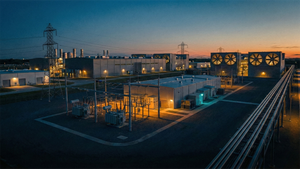Feeding Farmed Animals While People Starve: Humane Foundation Calls for Urgent Rethink of Global Food Priorities
LONDON, UK - As the world faces escalating hunger, climate instability, and social inequality, the Humane Foundation is calling for an urgent global shift in how food is produced and distributed — starting with a critical look at the role of industrial animal farming in perpetuating scarcity and injustice.
Every year, billions of animals raised for meat, dairy, and eggs consume enormous quantities of crops — crops that could instead nourish hungry people. This deeply flawed system, built on industrial-scale efficiency and profit, has led to a global paradox: a planet that produces more than enough food to feed everyone, yet leaves over 800 million people malnourished or food insecure.
“We’re not facing a food shortage. We’re facing a food justice crisis,” said A. Roghani, Executive Director of the Humane Foundation. “We grow vast amounts of soy, corn, and grain — not to feed people, but to fatten animals in factory farms. It’s an irrational system, and it’s harming both humans and animals on a massive scale.”
The Injustice of Industrial Animal Farming
At the heart of the Humane Foundation’s call to action is a simple but unsettling reality: more than one-third of the world’s crops are used not to feed people, but to feed livestock.
-
Over 70% of global soy and nearly one-third of grain production is funneled into factory farms.
-
It takes up to 16 pounds of grain to produce just one pound of beef.
-
Vast tracts of land — including ecologically sensitive areas — are cleared to grow feed for animals instead of nourishing human communities.
This inefficiency leads not only to food waste, but to worsening global hunger. Crops grown in the Global South are often exported to feed animals in the Global North, while local communities are left without access to affordable, nutritious food. Entire regions lose access to fertile land, clean water, and food sovereignty — all sacrificed in service of a meat-heavy system dominated by multinational corporations.
“When children go hungry while soybeans grown next door are shipped off to feed pigs in Europe or China, we have to ask ourselves: Who is this system really feeding?” said Roghani.
Starving the Planet to Feed the Few
Industrial animal agriculture doesn’t just displace food — it devours resources. In addition to crops, factory farming consumes:
-
One-third of the world’s freshwater, largely for feed irrigation.
-
More land than any other human activity, contributing to deforestation and desertification.
-
More greenhouse gas emissions than all the world’s cars, planes, and ships combined.
The result is a system that exacerbates climate breakdown — one of the greatest threats to food security in the coming decades. As weather patterns become more extreme and crop yields become more volatile, the most vulnerable populations — especially in the Global South — will bear the brunt of food shortages, price spikes, and famine.
“Factory farming is fueling the climate crisis that will make future hunger inevitable,” said Roghani. “It’s the definition of unsustainable — and inhumane.”
Animal Cruelty and Human Suffering: Two Sides of the Same Coin
While industrial animal farming is often criticized for its cruelty toward animals — confining billions of sentient beings in cramped, filthy, and unnatural conditions — the Humane Foundation stresses that the human consequences of this system are equally dire.
-
Farm workers in many countries endure unsafe, exploitative conditions for low pay.
-
Rural communities lose their land, water, and independence to powerful agribusinesses.
-
Entire nations are locked into export economies that feed animals abroad while their own people struggle to access basic nutrition.
The ethical cost is steep. The Foundation argues that continuing to prioritize cheap meat over food justice represents not just a policy failure, but a moral one.
A Call for a Compassionate Food System
The Humane Foundation is urging governments, civil society organizations, and individuals to rethink the food system from the ground up. That means:
-
Shifting subsidies away from industrial meat and toward plant-based agriculture.
-
Supporting farmers who grow food for people, not feed for animals.
-
Investing in local food systems that prioritize food security, not exports.
-
Encouraging more plant-based eating at every level — from homes to schools to public institutions.
“We can build a food system that nourishes everyone — not just those who can afford meat every day,” said Roghani. “It’s not just possible. It’s necessary.”
A More Humane Future Is Within Reach
The Humane Foundation envisions a world where food is produced ethically, shared equitably, and consumed responsibly. A world where animals are not confined in misery, and where people are not forced to choose between feeding themselves or feeding a system that profits from exploitation.
“Ending factory farming isn’t just an animal rights issue,” Roghani concluded. “It’s a human rights issue. It’s an environmental issue. It’s a survival issue. And the time to act is now.”
About the Humane Foundation
The Humane Foundation is a UK-based nonprofit working to dismantle the cruelty and injustice of industrial animal agriculture. Through its investigative platform Cruelty.farm, the Foundation exposes the hidden impacts of factory farming on animals, people, and the planet — and advocates for a more compassionate and sustainable future for all beings.
Media Contact
Company Name: Humane Foundation
Contact Person: Ali Roghani
Email: Send Email
Address:27 Old Gloucester Street
City: London
State: England
Country: United Kingdom
Website: https://cruelty.farm/
More News
View More




Recent Quotes
View MoreQuotes delayed at least 20 minutes.
By accessing this page, you agree to the Privacy Policy and Terms Of Service.
